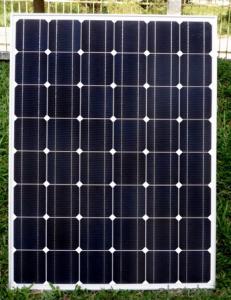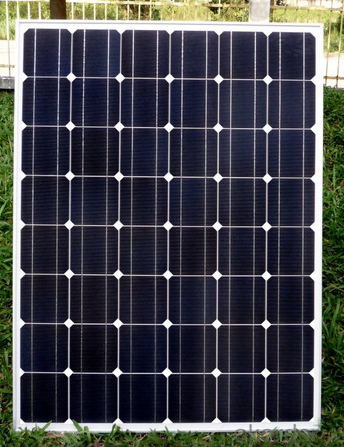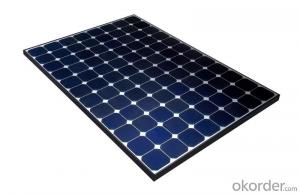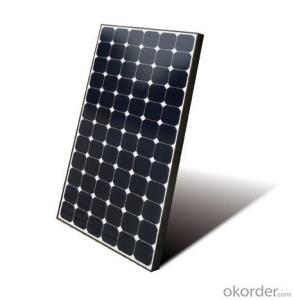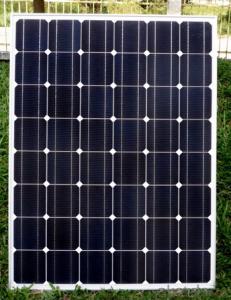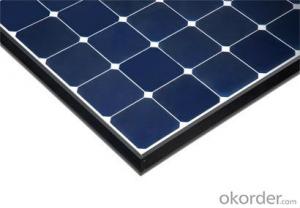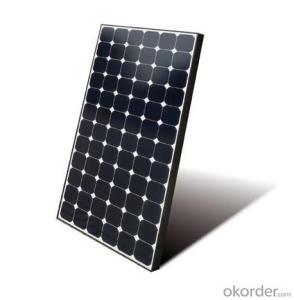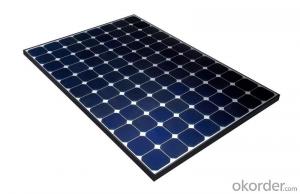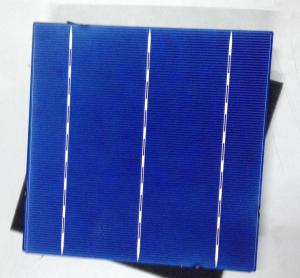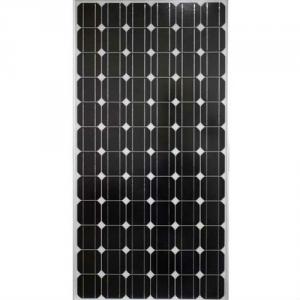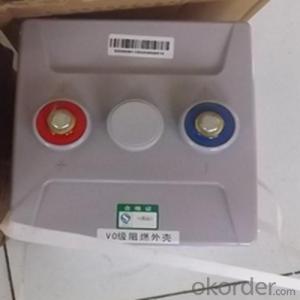Bulk Solar Cells - Poly Solar Panel 70w A Grade with 12 Years Warranty
- Loading Port:
- Shanghai
- Payment Terms:
- TT OR LC
- Min Order Qty:
- 100 watt
- Supply Capability:
- 1000 watt/month
OKorder Service Pledge
OKorder Financial Service
You Might Also Like
Specification
Poly Solar Panel 70W A Grade with 12 Years Warranty
Production description
Solar power is the conversion of sunlight into electricity, either directly usingphotovoltaics (PV), or indirectly using concentrated solar power (CSP). Concentrated solar power systems use lenses or mirrors and tracking systems to focus a large area of sunlight into a small beam. Photovoltaics convert light into an electric currentusing the photovoltaic effect.[1]
The International Energy Agency projected in 2014 that under its "high renewables" scenario, by 2050, solar photovoltaics and concentrated solar power would contribute about 16 and 11 percent, respectively, of the worldwide electricity consumption, and solar would be the world's largest source of electricity. Most solar installations would be in China and India.[2]
photovoltaic system, also solar PV power system, or PV system, is a power system designed to supply usable solar power by means of photovoltaics. It consists of an arrangement of several components, includingsolar panels to absorb and convert sunlight into electricity, a solar inverter to change the electric current from DC to AC, as well as mounting, cabling and other electrical accessories to set up a working system. It may also use a solar tracking system to improve the system's overall performance and include an integrated battery solution, as prices for storage devices are expected to decline. Strictly speaking, a solar arrayonly encompasses the ensemble of solar panels, the visible part of the PV system, and does not include all the other hardware, often summarized as balance of system (BOS). Moreover, PV systems convert light directly into electricity and shouldn't be confused with other technologies, such as concentrated solar power or solar thermal, used for heating and cooling.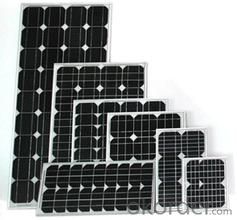
Application
Commercial
Industrial
Residential
Product Feature
12 years quality warranty 25 years performance output.
Free for less than 5 pcs sample requirement
Free to replace or repair or refund if products fail to conform to the PI requirement.
Packaging
28pcs into carton 2carton into pallets 28pallets into a 40ft container
Delivery
After 25 days for manufacturered goods as soon as we received full payment.
After 10 days for stock goods as soon as we received full payment.
- Q: How do solar cells compare to fossil fuel-based power generation?
- Solar cells have several advantages over fossil fuel-based power generation. Firstly, solar cells generate electricity by harnessing sunlight, which is a renewable and abundant source of energy, whereas fossil fuel-based power generation relies on finite and polluting resources like coal, oil, and gas. Additionally, solar cells have a significantly lower environmental impact as they produce no greenhouse gas emissions during operation. Solar cells also require less maintenance and have a longer lifespan compared to fossil fuel power plants. However, solar cells have limitations such as intermittent power generation and higher initial costs, but advancements in technology are addressing these challenges. Overall, solar cells offer a cleaner, more sustainable, and increasingly cost-effective alternative to fossil fuel-based power generation.
- Q: Are there any health risks associated with solar cells?
- There are no direct health risks associated with solar cells themselves. However, the manufacturing and disposal processes of solar panels can have some environmental impacts and potential health risks if not managed properly.
- Q: Anybody ever heard of solar roll flexible solar panel?
- The flexible solar cell rolls is more convenient than the other solar cells because it can be stored in a convenient storage tube.
- Q: Can solar cells be used in industrial applications?
- Yes, solar cells can be used in industrial applications. They are increasingly being integrated into various industrial processes and systems, such as powering machinery, providing electricity for lighting, heating and cooling, as well as supplying energy for remote industrial sites. The use of solar cells in industrial applications helps reduce reliance on conventional energy sources, lowers operating costs, and contributes to a more sustainable and environmentally friendly industrial sector.
- Q: Can solar cells be used for hydrogen production?
- Yes, solar cells can be used for hydrogen production through a process called photoelectrolysis, where the energy from sunlight is used to split water molecules into hydrogen and oxygen.
- Q: How do solar cells affect the aesthetics of a building?
- Solar cells can have both positive and negative impacts on the aesthetics of a building. On one hand, solar cells can be integrated into the design of a building in a way that enhances its visual appeal. They can be sleek and modern, adding a contemporary touch to the structure. Additionally, solar panels can be installed on flat roofs or as part of shading devices, blending seamlessly with the overall architecture. However, solar cells can also be seen as an eyesore, especially if they are installed in an unattractive or haphazard manner. The presence of bulky panels on the roof or facade of a building may be considered visually disruptive and can detract from the building's overall aesthetics. In summary, the impact of solar cells on a building's aesthetics depends on their design, placement, and integration. With thoughtful planning and execution, solar cells can actually enhance the visual appeal of a building, but careless installation may have the opposite effect.
- Q: How do solar cells perform in high humidity environments?
- Solar cells can still perform well in high humidity environments. However, excessive moisture in the air can potentially reduce their overall efficiency.
- Q: How efficient are solar cells?
- Solar cells are highly efficient in converting sunlight into electricity, with most commercially available solar panels having an efficiency range of 15% to 20%. However, research and development efforts are ongoing to improve the efficiency of solar cells, with some experimental cells already reaching efficiencies above 40%.
- Q: How do solar cells perform in polluted environments?
- Solar cells can still function effectively in polluted environments, although their performance may be slightly reduced. The presence of air pollution, such as smog or particulate matter, can block or scatter sunlight, resulting in a decrease in the amount of energy captured by the solar cells. Additionally, the accumulation of dust and dirt on the surface of the cells can further diminish their efficiency. Therefore, regular cleaning and maintenance are important to optimize the performance of solar cells in polluted environments.
- Q: Can solar cells be used in powering e-bikes?
- Yes, solar cells can be used to power e-bikes. Solar panels can be installed on the e-bike to convert sunlight into electricity, which can then be used to charge the e-bike's battery. This allows for a sustainable and renewable source of energy to power the e-bike, reducing reliance on traditional electricity sources.
Send your message to us
Bulk Solar Cells - Poly Solar Panel 70w A Grade with 12 Years Warranty
- Loading Port:
- Shanghai
- Payment Terms:
- TT OR LC
- Min Order Qty:
- 100 watt
- Supply Capability:
- 1000 watt/month
OKorder Service Pledge
OKorder Financial Service
Similar products
Hot products
Hot Searches
Related keywords
